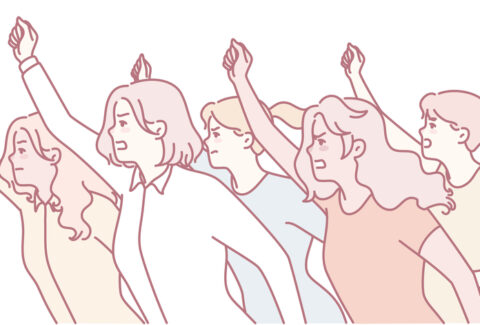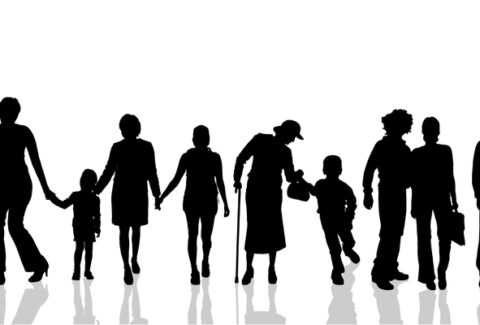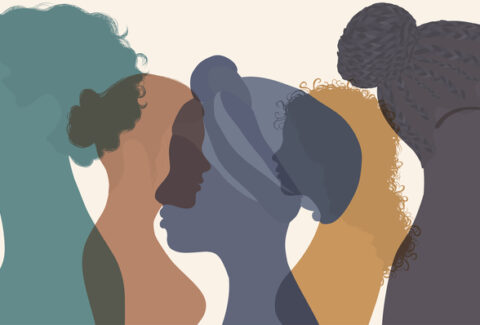The Mirror Effect: How We Become Our Own Oppressors
Introduction
When we speak of oppression, we often imagine external forces—systems, institutions, or individuals—that impose limits, injustice, or harm upon us. Yet one of the most insidious effects of oppression is when it turns inward. The voices of external oppression can become the voices in our own heads, shaping our inner dialogue, our beliefs about ourselves, and even our behaviors toward others. This phenomenon is known as internalized oppression, and it creates a mirror effect: the oppressed becomes their own oppressor.
The Psychology of the Mirror Effect
Psychology and neuroscience show us that human beings internalize repeated messages, particularly when tied to power, safety, or survival. Over time, these external narratives become part of the brain’s automatic processing. Research in cognitive neuroscience confirms that repeated exposure to stigmatizing messages leads to self-stigmatization, reinforcing shame and reducing self-efficacy (Corrigan & Watson, 2002; Steele, 2010).
This process is largely unconscious. Oppression plants seeds in the unconscious mind, which then surface in the form of critical self-talk, limiting beliefs, and automatic behaviors that reinforce the very systems we seek to resist.
Examples of Becoming Our Own Oppressor
- Self-Silencing: A person who has repeatedly been told their voice doesn’t matter may silence themselves in meetings, in relationships, or even in private reflection. The oppressor’s voice has become their own.
- Perfectionism Rooted in Fear: The demand to prove worthiness can turn into perfectionism, driven not by healthy aspiration but by fear of being judged, dismissed, or excluded.
- Policing Others in Our Community: Internalized oppression does not stop with the self. Those who have absorbed the dominant narrative may enforce those same narratives on others in their group, acting as gatekeepers of “respectability,” success, or belonging.
- Normalization of Harm: Oppression teaches that suffering, exhaustion, or invisibility is normal. Internalized, this can show up as self-neglect, ignoring burnout, or tolerating abusive dynamics in work or family life.
The Neuroscience of Internalized Oppression
The brain’s default mode network (DMN), involved in self-referential thinking, becomes programmed with these oppressive scripts. Without intervention, these scripts become “default” narratives, reinforced each time the individual repeats or enacts them. Research suggests that interventions such as mindfulness, narrative reframing, and community healing disrupt these entrenched patterns, creating neuroplastic shifts toward self-empowerment (Siegel, 2007; Davidson & McEwen, 2012).
Breaking the Cycle
To transform the mirror effect, we must:
- Identify the Voice: Recognize when inner dialogue echoes an oppressive script. Ask, “Whose voice is this?”
- Challenge the Belief: Replace inherited narratives with affirming truths grounded in dignity and humanity.
- Reclaim Agency: Take conscious action that contradicts the internalized oppressor, however small. Speaking when you feel silenced. Resting when told to “keep pushing.”
- Create Collective Mirrors: Healing communities provide new reflections—mirrors that affirm worth, agency, and resilience.
Reflection Questions
- In what areas of your life do you find yourself policing your own voice or behavior?
- Can you identify a “borrowed voice” in your inner dialogue—one that echoes a past oppressor?
- What action, however small, could disrupt that voice today?
Conclusion
The greatest victory of oppression is not in the laws it enacts or the chains it forges, but in the ways it convinces the oppressed to carry its weight inside their own minds. To see the mirror clearly is the first act of liberation. To shatter it, and replace it with a reflection of dignity, worth, and humanity—that is the ongoing work of freedom.
References
- Corrigan, P. W., & Watson, A. C. (2002). Understanding the impact of stigma on people with mental illness. World Psychiatry, 1(1), 16–20.
- Steele, C. M. (2010). Whistling Vivaldi: How stereotypes affect us and what we can do. W. W. Norton & Company.
- Siegel, D. J. (2007). The mindful brain: Reflection and attunement in the cultivation of well-being. W. W. Norton & Company.
- Davidson, R. J., & McEwen, B. S. (2012). Social influences on neuroplasticity: Stress and interventions to promote well-being. Nature Neuroscience, 15(5), 689–695.
Download the scholarly version of this article by clicking HERE









